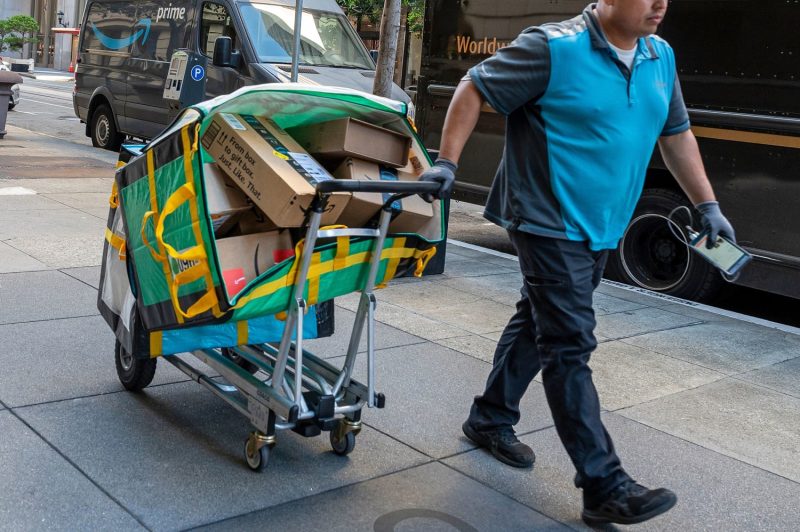In a recent turn of events, Amazon found itself facing legal action from the Attorney General in the District of Columbia for allegedly excluding certain neighborhoods from its Prime delivery services. This lawsuit highlights a pressing issue that is not only a concern for consumers but also raises questions about the impact of corporate policies on underserved communities.
The heart of the matter revolves around the accessibility of Amazon’s Prime delivery services to all neighborhoods within the District of Columbia. The lawsuit alleges that certain areas with predominantly African American and Hispanic populations were intentionally omitted from Amazon’s same-day and next-day delivery options. This exclusion, according to the Attorney General, amounts to a violation of local laws that prohibit discrimination based on race and national origin.
Amazon, a giant in the e-commerce industry, prides itself on its commitment to customer satisfaction and convenience. The Prime delivery service, which offers swift and reliable shipping options, has become a key selling point for the company. However, the decision to limit these services in specific neighborhoods has raised concerns about equity and fairness in access to goods and services.
The implications of such exclusionary practices go beyond mere inconvenience for residents in these neighborhoods. Limited access to fast delivery options could have a ripple effect on various aspects of their lives, including access to essential goods, healthcare products, and other vital services. This discrepancy in service provision not only perpetuates existing disparities but also underscores the need for companies like Amazon to be held accountable for their actions.
The lawsuit against Amazon serves as a sobering reminder that corporate entities must be mindful of the impact of their decisions on the communities they serve. As advocates push for greater equity and inclusivity in all aspects of society, businesses have a responsibility to examine and rectify any discriminatory practices that may exist within their operations.
Moving forward, it will be crucial for Amazon to address the concerns raised by the District of Columbia’s Attorney General and take steps to ensure that all neighborhoods have equal access to its Prime delivery services. By promoting transparency, accountability, and inclusivity in its practices, Amazon can demonstrate its commitment to upholding the values of fairness and equality for all consumers.
In conclusion, the lawsuit against Amazon sheds light on the importance of promoting equity and nondiscrimination in service provision. As the case unfolds, it will be interesting to see how Amazon responds to these allegations and what measures it takes to rectify the situation. Ultimately, this legal action serves as a call to action for companies to reassess their policies and uphold the principles of diversity and inclusion in all facets of their operations.

























